Saguaro National Park offers travelers an iconic slice of the Southwest
Get your camera ready for Saguaro National Park.
The park is home to the tallest cactus species in the country, the saguaro, a symbol of the Southwest. They’re particularly concentrated in the west district of the park, just outside Tuscon, Arizona.
“We like to call that one the Instagram side because you can literally go anywhere in the park, and there will be at least two or three dozen saguaros in the background of your photo,” said Cam Juárez, Community Engagement and Outreach coordinator and public information officer at the park.
Here’s what else travelers will find at Saguaro, the latest national park in USA TODAY’s yearlong series.
Why is Saguaro National Park worth seeing?
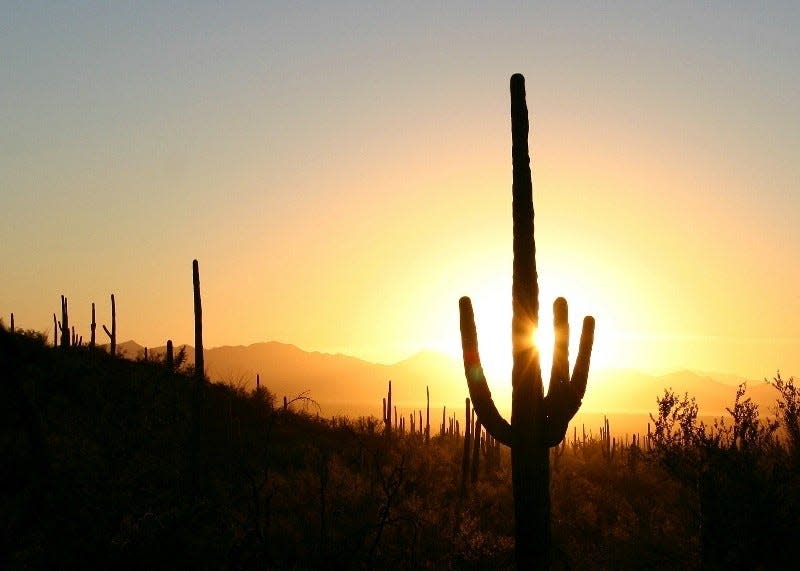
“Saguaros are super special because they only exist in this part of the world the way they do,” said Juárez. “You can visit certain parts of Mexico, you can visit certain parts of central Arizona, but you’re never going to see them the way you see them here.”
They’re not the only scenic beauties in the biodiverse park.
“Our peaks are in the neighborhood of around 9,000 feet,” Juárez said. Visitors can find aspen, pine and fir trees in its sky islands. “As you climb every few 100 feet down in elevation, you're experiencing different biomes all the way down to grasslands, to desert shrub, to basically just what you would imagine a desert to look like.”
Which side is better for Saguaro National Park?
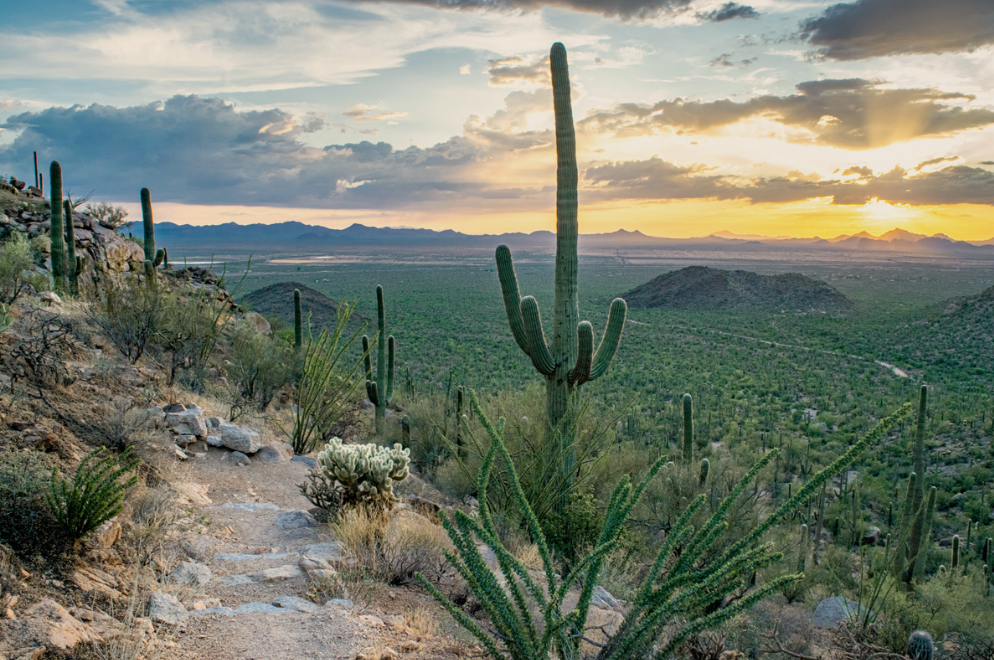
The park is divided into east and west districts, which bookend Tucson. Tucson International is the closest airport.
“My favorite is the west district, just because I love seeing the saguaro. You're going to have 2 million, versus maybe a quarter million saguaros on the east side,” Juárez said. “But if you're a backcountry hiker and you want to hike long distances, the east district, Rincon Mountain District, is definitely better.”
He noted the Arizona Trail, from the U.S.-Mexico border up to the Grand Canyon, goes right through the east district.
Can I drive in Saguaro National Park?
Yes. There is a $25 vehicle entry fee for the park, which is cashless.
Visitors can purchase passes online at Recreation.gov or at a park kiosk using a debit or credit card.
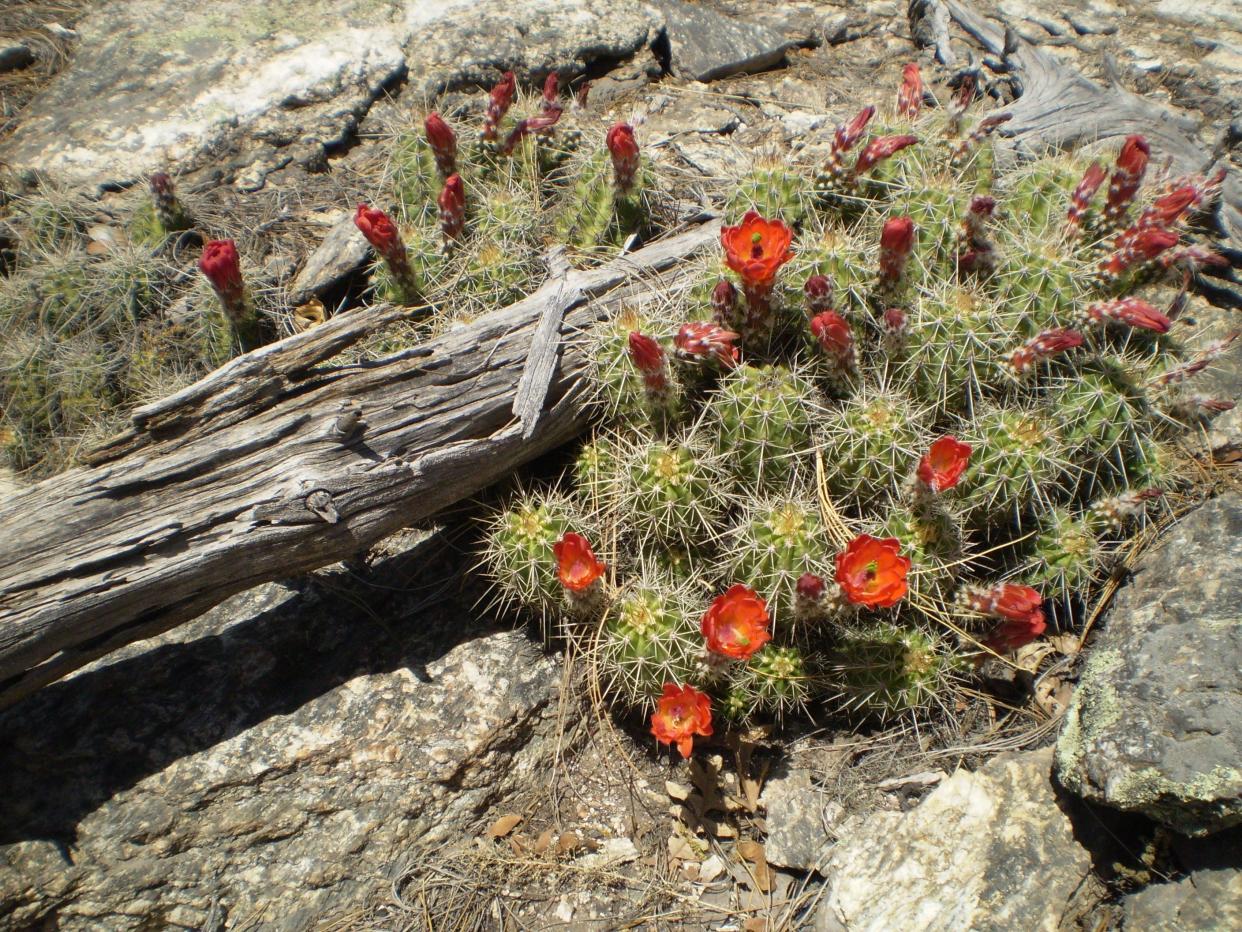
How long does it take to go through Saguaro National Park?
You could visit both sides of the park in one day but may be better off with two.
“If you only have one day, definitely take the Cactus Forest loop,” Juárez recommended. Cactus Forest Drive is a scenic 8-mile roadway in the east district. The west district has a 5-mile Bajada Loop Drive.
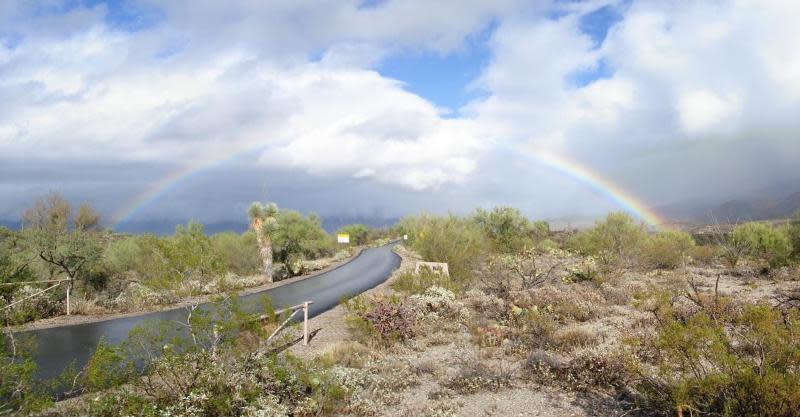
What is the best time to visit Saguaro National Park?
Juárez called October and mid-November magical. That’s just before the park’s busiest time of year, which he said runs from after Thanksgiving through April.
“Two times a year, we see a lot of rainstorms,” he added. “We have our traditional summer monsoons, and we have our winter rains. As a bimodal desert, you're going to see different blossoms at different times of the year.”
He said monsoons amplify the park’s already magnificent sunsets.
“The different colors of red and yellows and golds, coupled with purple skies, it's just everything that you see on postcards,” he said. “It just comes alive.”
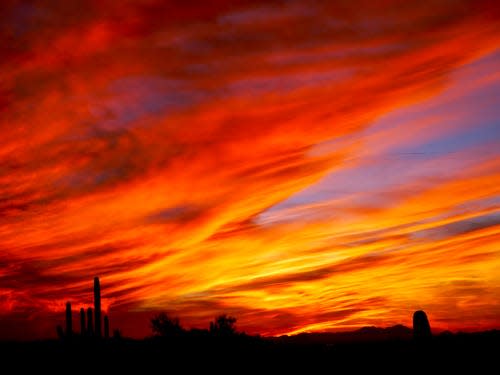
What does the saguaro mean to Native Americans?
“The Tohono O’odham have a very special relationship with the park. Their whole culture revolves around the saguaro cactus, or as they call it, the Ha:san,” Juárez said. Tribal members may harvest the fruit for traditional uses with a special permit through the Interior Department and National Park Service. “The fruit is harvested as part of their traditional medicine, their traditional foods. A lot of ceremonial wines come from that.”
He said other tribes tied to the land include Pascua Yaqui Tribe and Gila River Indian Community.
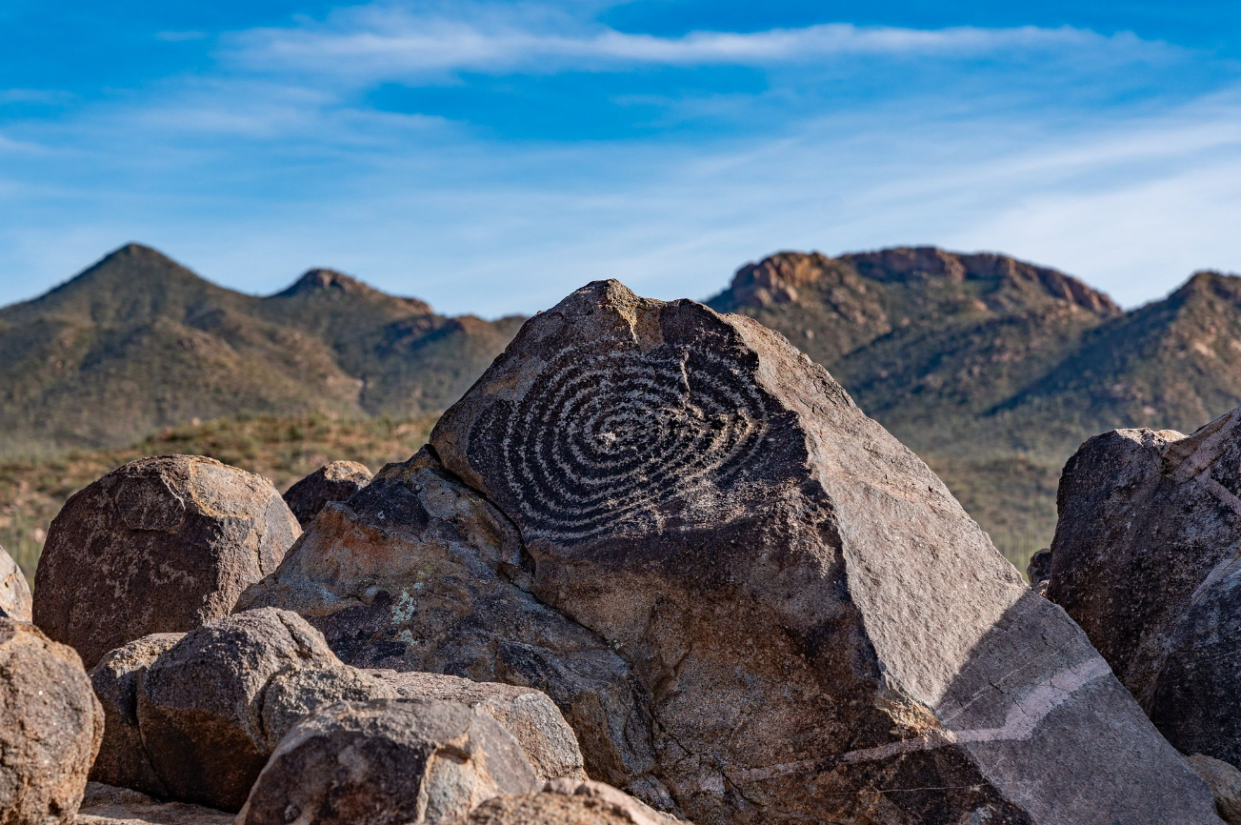
What else should visitors know about Saguaro?
“I would love for people to know that Saguaro National Park is making a concerted effort to be conscientious of the fact that the representation matters,” Juárez said. “Friends of Saguaro National Park, in conjunction with our team here, developed what's called the Next Generation Ranger program, and it's not just a paid internship. It's an opportunity for (interns) to gain experience and gain what's called the Public Land Corps credit opportunity, which will help us diversify not just race and ethnicity but also ability and gender … so when you walk into Saguaro National Park, you're going to run into very knowledgeable, very experienced, diverse young people that are matching our country's identity.”
Nearly 45% of the Tucson population is of Hispanic or Latino heritage, according to the U.S. Census. Several park staffers speak Spanish, including Juárez.
“It comes in handy because we're not just talking our friends to the south. We're talking all the way down to Central America and South America that are visiting national parks,” he said, adding that sometimes they’ll welcome visitors in Spanish. “You should see the look on people's faces. They're like, ‘Wow, you speak my language.’ I encourage all of my coworkers and staff people to make it a point to try to at least learn how to say welcome and hello in different languages.”
National parks for every body: How to make the outdoors more accessible
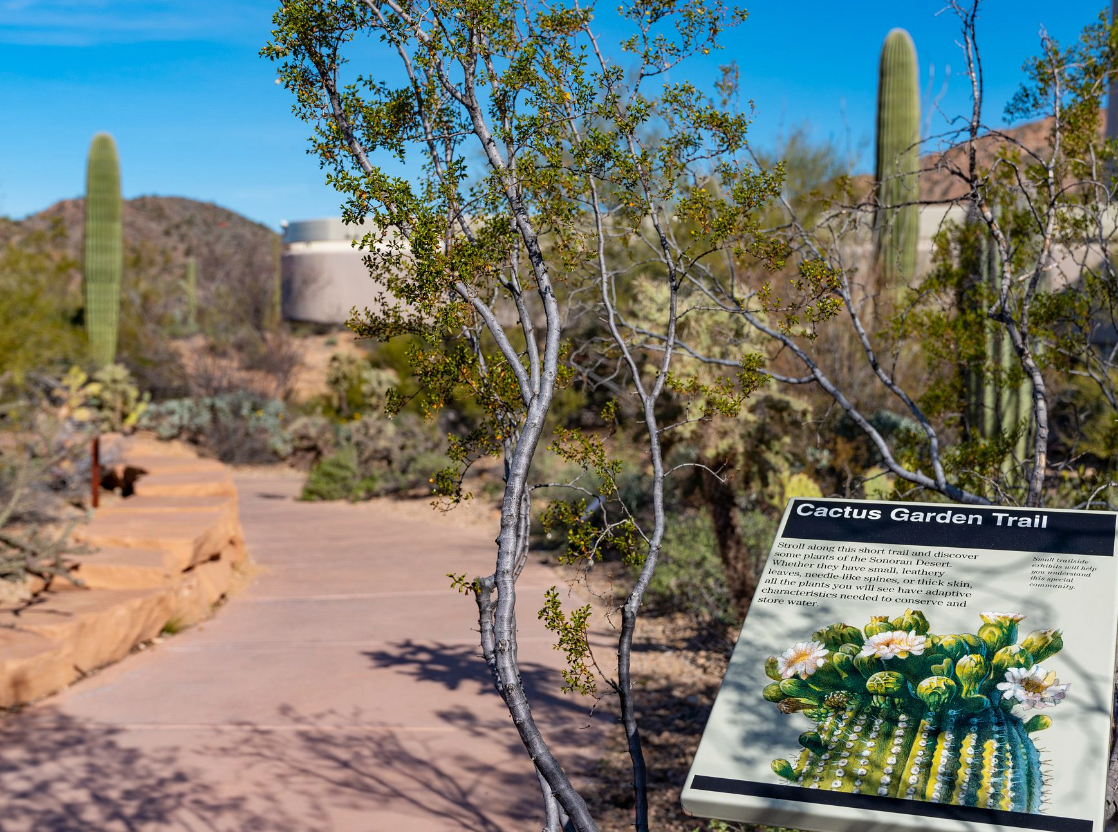
The park is also making a concerted effort to welcome guests of all abilities. Both districts offer a variety of accommodations, including accessible trails, braille and large-text versions of the park brochure, touchable exhibits, captioned programs and more.
“I definitely am an active voice, as a person with a physical disability, that says we can't just give folks a smidgen of what able-bodied individuals can get,” Juárez said. “We should make a very concerted effort to expand on everything we've done so far.”
This article originally appeared on USA TODAY: Saguaro National Park captures the picturesque Southwest